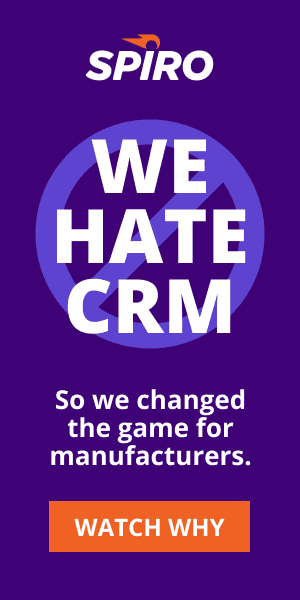6 Signs That You’re Selling the Wrong Product
A great salesperson can sell almost anything you put in front of them, but that doesn’t mean that they want to – or need to. If you’re good at what you do in sales, you should always try to sell the right product. Or, at a minimum, avoid selling the wrong product. After all, if you were a professional athlete, you’d want to be on a winning team, right?
If you end up selling a product that’s not a good fit for you, or is difficult to sell or not competitive, it puts you at a huge disadvantage and makes your job – which is already challenging enough – an uphill battle. So if any of the following signs look familiar, there’s a good chance that you’re selling the wrong product and may want to consider your options.
1. The industry is in decline
It can be difficult to identify macroeconomic trends when you’re in the thick of selling. But it’s incredibly important to know if you’re working in an industry that’s on its way out. When personal computers began to gain popularity, there were still typewriter salespeople pounding the pavement, trying to sell an obsolete product. If you’re pitching a product or service that is unlikely to be necessary in the near future, you should consider finding an exit strategy.
2. You’re not treated well
This usually has more to do with the company than the product itself, but if you’re not treated with respect at your sales job, you’re probably selling for the wrong company. Company culture is more important than ever, and tolerating people who have little respect for their sales team is not something you should stand for. If the company doesn’t treat you well, it probably isn’t a company you want to convince your network to work with.
3. Your product/company gets terrible reviews
You can’t always trust reviews, and there are plenty of examples of spiteful customers or personal grudges destroying a company’s online reputation. But overall, a consistent flow of bad reviews tend to indicate there’s something wrong. As a salesperson, you need to make an informed choice about what business you want to represent, especially since this decision will become a huge part of your life for years. Similar to the last piece of advice, if the company doesn’t treat customers well, you shouldn’t bet your career on it.
4. You’re consistently getting beat out by a competitor
Losing a deal to a competitor is part of sales. It usually has to do with luck, timing, or simply someone else doing a better job of selling than you. But there are times when your product is inadequate or a competitor’s product provides more value for the price that it becomes nearly impossibly to compete. This is one reason why big companies buy smaller competitors. Being on the losing side of an industry battle isn’t much fun, though oftentimes you can ride it out until your company adjusts. But if you’re getting destroyed almost every time with no end in sight, you might want to consider your long term prospects.
5. The company isn’t adjusting to the market
Likewise, selling for a company that isn’t adjusting to market forces is a tough proposition. Emerging technology (like Spiro’s Proactive Relationship Management platform) is changing industries almost overnight, and no industry is safe from disruption. Some companies, for a myriad of reasons, either can’t see where things are headed or refuse to change in time. None of this matters to customers, who only want the best product for the best price. If you wait too long and stick with a company that doesn’t want to acknowledge the future, you might find yourself selling the wrong product.
6. You’re not excited about it
You need to be excited about what you sell, even if the excitement is only related to how much money you can make. Without excitement, you’re never going to perform to your full potential. Many people recommend going into industries that you’re passionate about. Ideally, you should also be working for a company that you believe in. But if you’re unable to find both of those things, at least find a company that makes you excited about the potential to make a great living. And if you can’t find that, then keep looking.

